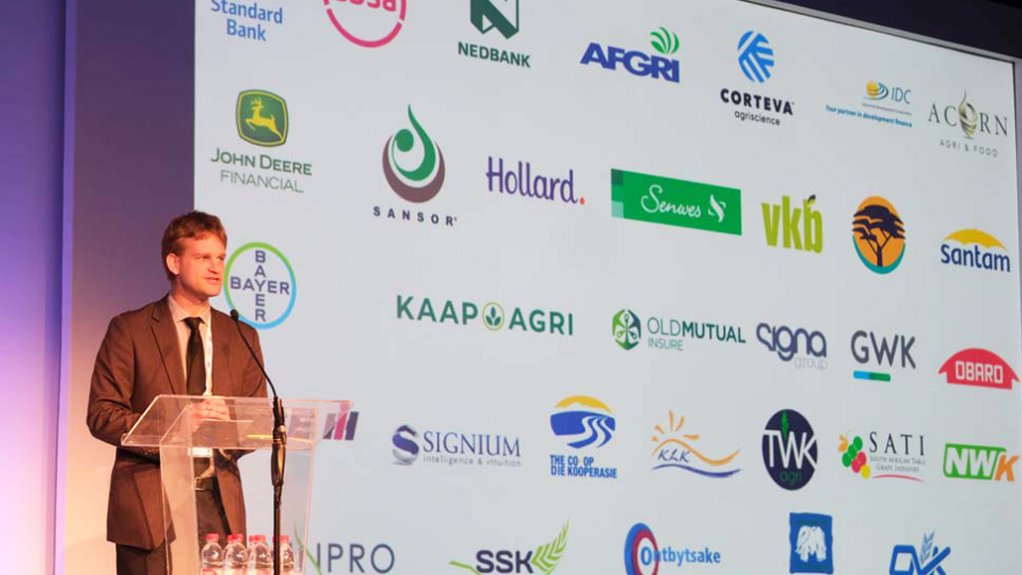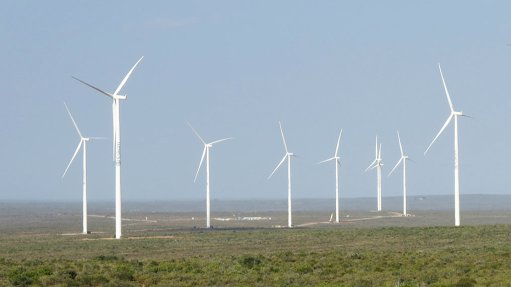Agbiz optimistic about market expansion with addition of new Brics members
With more countries to become members of the Brazil, Russia, India, China and South Africa (Brics) grouping, the South African agricultural industry will seek to deepen trade with these countries, particularly Saudi Arabia as a $20-billion importer of agricultural produce every year.
The European Union and Asia remain fundamentally important markets to South Africa’s agricultural trade and the expansion to more Brics members should be seen as additional markets, not replacements, Agricultural Business Chamber (Agbiz) chief economist Wandile Sihlobo states.
With the fruit industry poised to produce 26% higher volumes in coming years, these new markets pose a significant opportunity for absorption.
Argentina, Egypt, Ethiopia, Iran, the United Arab Emirates and Saudia Arabia have been accepted to join Brics from January 2024.
Sihlobo says South Africa has not benefitted fully from Brics historically in terms of agriculture, considering that Brics takes up 8% of South Africa’s exports, which is small relative to the UK’s take-up of 7% alone.
Of the original Brics member countries, India and China made up about $320-billion of agricultural imports from other Brics members as of 2023.
The Brics agribusiness focus areas for this year benefitted member countries in the form of knowledge-sharing on agri-technology, boosted fertiliser production, more agricultural finance in Africa, market access and advancing climate-smart agriculture.
“Making intra-Brics trade more competitive and reducing various barriers would help deepen trade among these countries. This includes reduced import tariffs and addressing sanitary and phytosanitary (SPS) measures,” Sihlobo notes.
Agbiz fruit desk manager Wolfe Braude agrees, explaining that SPS approval timelines are excessively long and can be made shorter without compromising the technical efficacy of the process.
Agbiz has proposed to the Brics Business Council an agreement on coordination of SPS administrative processes in this regard, which will not be a trade agreement but rather an agreement on administrative cooperation and coordination.
Deepened trade among Brics countries is particularly important as the world economy continues to see slowing prospects, with growth over the next five years expected to be below the average levels seen from 1982 to 2019.
“We are seeing the global impacts of low demand for high-end products weighing on the South African economy,” Sihlobo states, adding that coupled with South Africa’s low near-term growth expectations makes expanded markets for agricultural trade more imperative.
He expects South Africa’s economic growth to not reach more than 2%, which translates to low job creation prospects.
Agriculture has done well to support the South African economy, having grown from exporting $2-billion worth of products in the early 2000s to just under $13-billion in 2022.
Sihlobo highlights the main obstacle to more agricultural exports as being logistics.
Commenting on this topic, Braude says the National Logistics Crisis Committee (NLCC) has made strides to improve freight movement in the country, with the organisation working with the committee to broaden the scope for agriculture in ports and corridor planning.
He points out that Transnet is moving rapidly to increase spares availability and equipment readiness and availability. “The NLCC process offers opportunity for structured progress to tackle longstanding logistical issues. We are optimistic that we will see breakthroughs in the logistics system next year,” Braude adds.
Meanwhile, Agbiz CEO Theo Boshoff says key trends that will likely continue in 2024 are consolidation, the unpredictable global and natural climate, geopolitical risks and protectionism, as well as activism in agriculture.
For example, Boshoff elaborates, anti-genetically modified and anti-chemical pesticide lobby groups are becoming more influential, which agribusinesses need to come to grips with.
He agrees with Sihlobo that logistics will remain an issue in the short term, as well as the electricity shortage, service delivery, cost of capital, slow transformation, social instability and disease control.
Boshoff says public sector aspects of policy stability and predictability, reliable infrastructure and overall competency of government are weighing on the competitiveness of the agriculture sector.
The agriculture industry’s priorities in 2024 include active partnering, rural rejuvenation, energy security, buffering against instability, freight logistics improvement, port contingencies and crisis plans, third-party rail access, advanced trade in Brics and the US, as well as the Southern African Development Community, improved standards, labour migration curbs and sorting out issues on water legislation.
“Managing these as best we can will be key to agricultural competitiveness,” Boshoff states.
On the rural rejuvenation front, Agbiz has been hosting workshops across the country to address instability, failing infrastructure and energy problems. The organisation has noted deteriorating business conditions in rural areas, with rural farmers being disproportionally impacted by the broader challenges of the country.
The task teams in this regard are empowering farmers with information to better prepare and avoid being targeted during social unrest action and helping with rural development.
Agbiz hosted a media day on December 1 during which the experts shared their view on the state of the agriculture industry.
Article Enquiry
Email Article
Save Article
Feedback
To advertise email advertising@creamermedia.co.za or click here
Press Office
Announcements
What's On
Subscribe to improve your user experience...
Option 1 (equivalent of R125 a month):
Receive a weekly copy of Creamer Media's Engineering News & Mining Weekly magazine
(print copy for those in South Africa and e-magazine for those outside of South Africa)
Receive daily email newsletters
Access to full search results
Access archive of magazine back copies
Access to Projects in Progress
Access to ONE Research Report of your choice in PDF format
Option 2 (equivalent of R375 a month):
All benefits from Option 1
PLUS
Access to Creamer Media's Research Channel Africa for ALL Research Reports, in PDF format, on various industrial and mining sectors
including Electricity; Water; Energy Transition; Hydrogen; Roads, Rail and Ports; Coal; Gold; Platinum; Battery Metals; etc.
Already a subscriber?
Forgotten your password?
Receive weekly copy of Creamer Media's Engineering News & Mining Weekly magazine (print copy for those in South Africa and e-magazine for those outside of South Africa)
➕
Recieve daily email newsletters
➕
Access to full search results
➕
Access archive of magazine back copies
➕
Access to Projects in Progress
➕
Access to ONE Research Report of your choice in PDF format
RESEARCH CHANNEL AFRICA
R4500 (equivalent of R375 a month)
SUBSCRIBEAll benefits from Option 1
➕
Access to Creamer Media's Research Channel Africa for ALL Research Reports on various industrial and mining sectors, in PDF format, including on:
Electricity
➕
Water
➕
Energy Transition
➕
Hydrogen
➕
Roads, Rail and Ports
➕
Coal
➕
Gold
➕
Platinum
➕
Battery Metals
➕
etc.
Receive all benefits from Option 1 or Option 2 delivered to numerous people at your company
➕
Multiple User names and Passwords for simultaneous log-ins
➕
Intranet integration access to all in your organisation




















